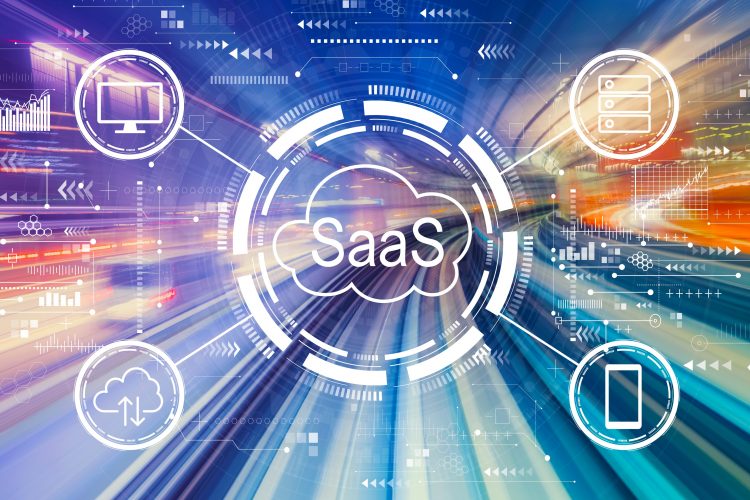How can Software as a Service drive collaboration and success in pharma?
Posted: 24 November 2020 | Hannah Balfour (European Pharmaceutical Review) | No comments yet
In this Q&A, Nick Pike, Chief Revenue Officer at Vizibl, outlines with EPR’s Hannah Balfour the benefits of Software as a Service (SaaS) for pharmaceutical companies and describes how its adoption can enable companies to achieve many goals faster; from collaborating on bringing new products to market to reaching their Environmental, Social and Governance (ESG) objectives.


What is SaaS?
The concept of Software as a Service (SaaS) has been around for about 20 years. With these cloud-based provisions, access to software is provided on a subscription basis – ie, a company takes out a subscription for a defined period of time and pays a regular fee for employees to access the programmes from a central cloud using an internet browser. A huge variety of software is available via these services, from communications to office programmes and other business apps.
Prior to the use of SaaS, companies had to buy software assets (discs etc, with the programmes on) and use these to install whatever applications were needed by the various items of hardware used by the company. This required assets to be stored for prolonged periods and companies had to buy a new disc if a programme needed updating or additional user licences were required.
Why use SaaS instead of downloading software?
SaaS versus direct downloads is sort of equivalent to Netflix versus BlockBuster; essentially SaaS, like Netflix, offers a huge range of options on demand for a small fee without the user being required to pay to own the asset or for its upkeep.
The list of advantages is long, but some key ones include speed and accessibility, ease of updating, cost and end-of-use.
Speed and accessibility are major advantages of SaaS, as all that is required is an internet connection. Little time is taken to order an asset or install a programme, users simply log into their cloud to access what they need. It also does not matter what operating system users are working with, so they can use programmes regardless of whether they are using Windows or iOS, smartphone or PC.


Ease of updating also ties into speed, as software updates can be run centrally in the cloud, without requiring the lengthy compatibility and security testing that is needed prior to the installation of updates to software that is directly downloaded.
SaaS is also cheaper than directly downloading software, as it removes the need for companies to invest in additional servers, network switches and other hardware that is necessary to support the software across the business. This means that even small businesses can now access software that previously only large companies could afford the hardware to run. Furthermore, SaaS is scaleable – users can be added or removed from the service as needed with requisite adjustments to payment, where with direct downloads companies may have had to buy more hardware when expanding.
When a company no longer wishes to access a certain piece of software, it can simply stop paying the fee to access it. The potentially substantial investment that went into the technology is not wasted, left on a shelf without being used as would happen with direct downloads.
SaaS has very few limitations, aside from requiring an internet connection. While some services have adapted their offerings so that there is some functionality while users are offline, this tends to be limited. The capabilities of the network with which users are connected can also limit SaaS; however, upgrades to many networks and the widespread adoption of high-speed internet means these issues are minimal.
What are some of the trends in the use of SaaS? Has it become more popular with the pandemic?
Technology is one of the few markets in which consumers are ahead of industry. After years of the existence and adoption of technologies such as SaaS into our personal lives, industry is now scrambling to catch up. COVID-19 has generally accelerated digital change in our personal lives, and we expect this to translate to industry in the next five years.
With regards to SaaS, the need for many employees to work remotely due to the pandemic has only increased its implementation by industry. However, the use of SaaS has been consistently increasing in double digit figures over the last five years; its adoption by big organisations, such as large pharma companies, has been a key driver of this growth and it is now rare for companies to download software, instead opting for SaaS.
Are SaaS systems safe for use in heavily regulated industries like pharma?
The safety of any data is dependent on who you are trusting with it and the systems for storing and protecting it that they have in place. For SaaS, larger, more specialised and established providers are likely to have more mature and potentially better processes in place to handle data, for instance Amazon Web Services (AWS), Google Cloud and Microsoft Azure.
How could the use of SaaS benefit pharmaceutical companies specifically?
The most important consideration for big pharmaceutical companies is the speed with which they can get products to market and SaaS can help to reduce time delays across the lifecycle of a product, from development through manufacturing and distribution. One of the biggest advantages of SaaS is that it can be implemented and used straight away, across an entire business and its suppliers. SaaS is centrally managed, so updated features and services are available to everyone at the same time. Data about business operations and workflows can also be collected, analysed and used to streamline and optimise processes.


Companies can use SaaS platforms to help collaborate better both internally and with their suppliers. Implementing SaaS can also help transform procurement, enhancing collaboration with suppliers to deliver services and build products faster, with a timeframe of weeks or months rather than years.
Environmental, Social and Governance (ESG) objectives are another area in which SaaS can help pharma companies reach their goals. The ability to implement software across suppliers and other necessary stakeholders enables companies to apply standardised processes across their whole supply chain that help them meet key environmental and social objectives as well as centrally monitor the progress towards these goals.
Using SaaS, industry can move away from the more traditional idea of winning or losing towards collaborating to address bigger problems affecting more than one company, such as the environment, COVID-19 or social issues. Big changes in these areas, where they are needed most, will not happen quickly; however, using technology they can be shared and simplified.
Nick Pike is the Chief Revenue Officer at Vizibl, a SaaS supplier collaboration tech platform that enables enterprise buyer organisations, at scale, to manage better supplier partnerships, accelerate innovation and drive growth.
Related topics
Big Pharma, Drug Supply Chain, Informatics, Supply Chain, Sustainability, Technology









